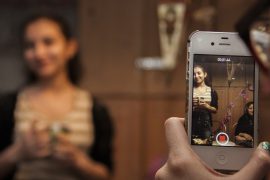Making sure students prepare for class and complete assigned work is a longstanding challenge for all educators. We’ve written on Teaching@Sydney previously about one academic’s approach that involves having students generate short videos. As part of the University’s inaugural First Year Coordinators’ Program, over 50 unit and program coordinators meet fortnightly to discuss pressing and practical issues such as this. Here is a brief summary of their collective strategic wisdom.
RATs and TBL
A coordinator in a health discipline shared about team-based learning (TBL), an approach that has been gaining traction over the past decade, especially in medical education. The basic structure involves students preparing before class (such as reading resources or watching videos), and then undertaking a form of ‘readiness assurance test‘ (RAT) in class (this can be individually, in teams, or commonly both sequentially), which is followed by discussion and feedback. This process motivates students through assessment and through positive group norms for preparation and peer contribution. The Sydney Medical School has a great outline of how they implement TBL. You may also want to check out a short article about why TBL is effective in encouraging student preparation and learning.
Make it about them
Other coordinators described how they emphasise to students that preparatory work is about getting the best out of their face-to-face time with teachers. They do this by reminding students why they (as teachers) are there, and how valuable class time really is for everyone. If this doesn’t work, try reminding your students that divided out, each contact hour at university is worth about the same as a concert ticket – well worth the investment!
Another strategy that was suggested involved having students contribute and discuss relevant material before class so that they were more motivated to come to class. One coordinator had students contributing to online blogs and responding to each others’ posts before class, and then discussing these in class. Other coordinators we know of have used tools like Padlet to allow students to post photos or short pieces of text before class to a shared space, which is then used for in-class discussion. Using these approaches, your students can co-create their own lesson material and make it relevant to their lives.
Carrots and sticks
Students are driven by assessment. A number of coordinators regaled us with tales about the lengths that, particularly first year, students will go to gain even 0.05% of assessment marks. Coordinators suggest that placing nominal marks on preparatory activities is the most effective approach to ensuring completion. This could be in the form of mastery quizzes (where students have unlimited attempts at 100%), or RATs (described above in the context of TBL), or normal online quizzes delivered via the learning management system. (Just keep in mind academic integrity requirements). When we implemented simple weekly pre-work quizzes worth a total of 5% before practical classes, we found our students came very well prepared and class time was not wasted in making sure everyone was on the same page. The added bonus was that we could analyse the quiz outcomes and address misconceptions and issues identified through poorly-answered questions.
Another coordinator suggested grouping students at the beginning of class into groups who have and haven’t done their preparatory activities. Although this could be seen as a punitive measure, an alternative perspective is that it allows different types and depths of conversations to occur in the prepared and unprepared groups. Another tried and tested approach is to “not have no consequences for not preparing“. What this triple negative phrase espouses is making sure a lack of preparation impacts students in some way (but keep this impact low). For example, if the material found in pre-work is covered in class anyway, students will quickly learn that the pre-work is unnecessary.
Tell me more!
As the University prepares for more building more interactive learning experiences, such as those involving preparatory work to do with flipped classrooms (a topic for another post!), we need to think about how to encourage our students to prepare for class so as to make the most of face-to-face time. Here is some other food for thought:
- University of Sydney Teaching Insight piece about practical approaches to flipped classrooms
- University of Michigan article about ensuring accountability for preparatory activities





